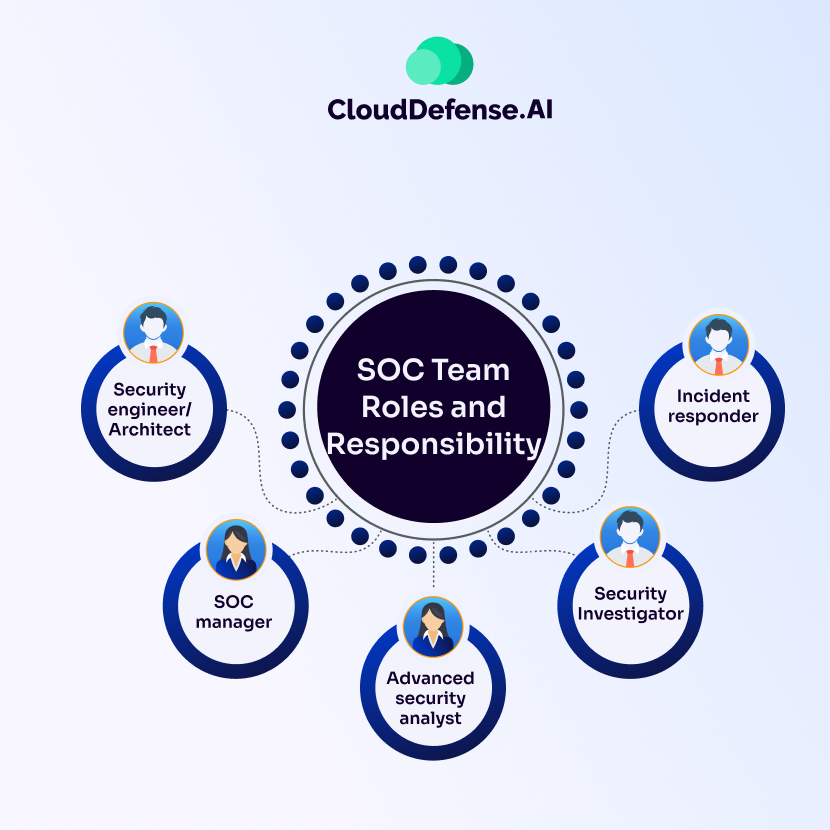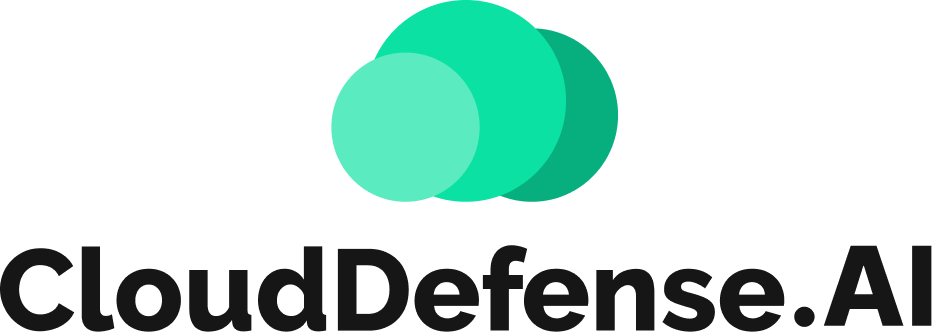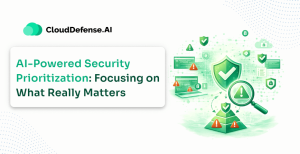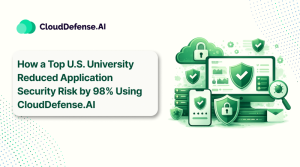A security operations center or SOC is a team of security experts of an organization responsible for managing and upholding the organization’s overall cybersecurity. In modern times, it has become imperative for every organization to build an effective SOC team that will be responsible for monitoring and protecting an organization’s crucial assets.
Cybercriminals are always on the verge of exploiting loopholes and stealing sensitive data or disrupting the operation of an organization. However, a well-built SOC can help your organization deter such attacks. Security professionals like SOC analysts, security engineers, and SOC managers form a SOC team in which individuals have several roles and responsibilities.
Now, you must be wondering what SOC is and what the roles and responsibilities of each security professional in the team are. To clear up your confusion, today we are going to discuss security operations center (SOC) roles and responsibilities. Along with the roles and responsibilities, we will also discuss what SOC is and learn about the best practices that can build a robust SOC team.
Without further ado, let’s dive in!
What is a Security Operations Center (SOC)?
A security operations center or SOC is a security unit of an organization that holds the responsibility to monitor, identify, investigate, prevent, and respond to security threats around the clock.
By leveraging data from the organization’s network, infrastructure, devices, and cloud services, SOC defends the organization against existing threats and potential attacks that might breach the environment.
Every SOC team in an organization is tasked with designing the organization’s cybersecurity strategy and helping coordinate the effort of monitoring, asses, and defending assets against threats.
Every modern organization invests in SOC because it serves as a key aspect of a security strategy that not only helps in responding to threats but also continuously enhances threat detection methods. In general, a SOC team consists of members who have the necessary skills to accurately identify cyber threats and help other departments address security incidents.
SOC Team’s Roles and Responsibilities

Based on the size, complexity, and requirements of the organization, SOC varies greatly from organization to organization. However, the core roles and responsibilities of the SOC remain almost the same across the industry.
In general, a SOC 2 team consists of SOC analysts from different tiers, SOC managers, and SOC engineers, each with the primary aim of monitoring and maintaining the overall security posture. Let’s take a look at some common SOC core roles:
SOC Analyst
SOC analysts play a crucial role in a SOC team where they are tasked with monitoring the system, infrastructure, and network for various security threats and responding to them. They also make use of SIEM tools, threat intelligence, and SOAR platforms to identify potential threats and gather all the required information. SOC analysts are segregated into three tiers based on their roles and responsibilities:
Tier 1: Triage Specialist
A tier 1 SOC analyst is generally considered for alert triage and reporting tasks. These analysts mainly gather raw data and assess all the alerts that have come to them. After assessing the alert, they have to confirm or define the impact level of the alert and also enrich those alerts with required data.
Besides, these analysts also had to define whether an alert is accurate or a false positive and help minimize alert fatigue. On many occasions, tier 1 SOC analysts also had to identify high-risk security incidents and prioritize them according to their severity. When Tier 1 analysts fail to solve the issues, then it is passed to Tier 2 analysts.
Tier 2: Incident Responder
Tier 2 SOC analysts are incident responders who are responsible for reviewing and responding to high-priority security risks escalated by tier 1 SOC analysts. They perform thorough assessments by leveraging threat intelligence to discover the primary aim of the attack and which systems were affected. Threat intelligence mainly comprises the raw data collected by tier 1 analysts.
Additionally, tier 2 SOC analysts help design and enforce security strategies that help the organization recover from and contain any security event. When the analysts aren’t able to mitigate or identify an attack, then it is escalated to Tier 3 SOC analysts, or sometimes expert analysts are called for assistance.
Tier 3: Threat Hunter
The Tier 3 SOC analysts are the most experienced security individuals in a SOC team who deal with all the serious security incidents that are passed on to them. These analysts are also known as threat hunters because they take proactive measures to hunt and identify severe security threats that can lead to data breaches or system disruption.
They are also tasked with performing vulnerability assessment and penetration tests to discover any potential attack. All the critical alerts and security data passed by tier 1 and tier 2 SOC analysts are analyzed by tier 3 SOC analysts before they are utilized.
Tier 3 SOC analysts also help in optimizing security monitoring tools when they identify a possible threat.
SOC Engineer
Along with the SOC analysts, the SOC engineers also play a crucial role in protecting the organization’s assets from all threats. These engineers help in designing, enforcing, and managing all the security controls and policies that are in place to safeguard the assets, networks, and systems of the organization.
From implementing access control and configuring firewall & intrusion detection systems to performing security assessments, SOC engineers help fortify the defense system in many ways.
Some engineers even help in addressing some advanced security threats by reverse engineering the malware. This methodology not only helps in delivering threat intelligence to the analysts but also improves detection accuracy in the future.
SOC Managers
Unlike SOC analysts and engineers, SOC managers look after the everyday operation of the SOC team and make sure the system, along with the network, is completely secured. In addition, the SOC managers are responsible for providing technical guidance to the team in the event of severe security events or challenging threats.
They also have roles and responsibilities for conducting the process of hiring and training team members of cloud securities. Plus, they also need to scrutinize incident reports, develop crisis communication plans, and create other security processes. In many organizations, SOC managers not only have to manage resources but also have to adjust priorities according to the organization’s requirements.
Apart from developing various security procedures, SOC managers, in many instances, create and enforce security policies on behalf of the SOC team. These security professionals also provide compliance support by supporting security audits and looking after the financial details of the SOC process.
Additional SOC Roles
Besides the tiered and common SOC roles in an organization, many other additional and specialized roles are found in a SOC team.
In many large organizations, the SOC team often includes unique roles like compliance auditor and professionals for threat intelligence. Let’s dive into the details of all the additional roles and responsibilities that you will find in a SOC team:
Chief Information Security Officer (CISO)
CISOs serve as the top-level senior executives who are part of the leadership team, and they usually report directly to the CEO or senior board member. These professionals usually look after the cybersecurity operation and strategy of the organization.
Besides overseeing, CISO also carries the role and responsibility of building and enforcing various cybersecurity strategies and policies in the organization that the SOC team can’t implement. In addition, they also have to oversee and analyze the security posture and make recommendations accordingly to enhance the overall cloud defense.
They also serve as a bridge between senior management and the SOC team to ensure the security policies and practices align with the organization’s requirements and strategies. CISOs also take part in the organization’s decision-making process regarding best practices, tools, and technologies that should be implemented in cybersecurity.
Compliance Auditor
Compliance auditor is a specialty role in a SOC team whose main task is to make sure that all the security procedures and practices align with the industry regulatory requirements. They also ensure that none of the policies violates any federal security regulation because it can lead to serious penalties.
Threat Hunters
This role might seem similar to tier 3 SOC analysts who actively hunt for threats but this specialized role does more than tier 3 analysts. It not only assesses all the activity logs but also makes thorough research by utilizing public threat intelligence and helps the organization make necessary changes.
Threat Responder
Threat responders also play a crucial role in a SOC team that takes part in the threat-hunting process. They help identify, analyze, and address different types of cybersecurity threats that might impact the organization’s infrastructure and network.
Forensic Analyst
These security professionals have the responsibility to perform investigation and research on a specific cybercrime to understand how they have breached and affected the system. They make detailed investigations on the source, purpose, and extent of the cybercrime which ultimately help the SOC team to build their incident response and mitigation strategy.
Vulnerability Manager
Unlike SOC managers, vulnerability managers only have the responsibility to continuously monitor, assess, and manage vulnerabilities present in the workload, network, and system. The vulnerability manager also has to make recommendations to remediate those vulnerabilities.
Consultation
On various occasions, a SOC team might have to bring additional consulting roles where they mainly serve as a Security Architect and Security Consultants. The Security Architect helps in researching and designing a robust security infrastructure for the organization.
The SAs often have to perform system and vulnerability tests and oversee changes made in the security. In the event of system recovery, Security Architects are responsible for initiating the correct recovery process.
The Security Consultant, on the other hand, researches the security infrastructure, security standards, and best practices and provides an overview of the current SOC capabilities of the organization. Besides providing the current SOC capability status, it also helps the organization design and build a robust security architecture.
What are the Best Practices for a Winning SOC Team?
Cybersecurity has become a primary aspect of every organization, but organizations often face the dilemma of whether they require SOC or which SOC component they will require for their cybersecurity strategy.
Even if they choose SOC, the team might encounter various challenges. However, some best practices can lay the foundation for the organization and help them build a winning SOC team. Here are some best practices your SOC team can follow:
Utilizing Advanced Technology
The SOC capabilities of your organization are largely dependent on the technology that is available for use. The SOC team must be able to use advanced technologies that allow them to analyze data and prevent potential threats that might affect the organization.
The SOC team should be given access to modern SIEM and other security tools with unique technology that will help them enhance the overall security posture. The team should be given access to tools that will help minimize false positives and provide enough time for analysts to analyze potential security incidents.
Emphasizing Security Professionals and Staff
The security professionals and other personnel working in the SOC serve as one of the primary factors for any successful SOC team. The SOC analysts, engineers, and architects play an instrumental role in SOC strategy, so it is important to train, retain, and guide them, which will pave the path toward a successful team.
Even though machine learning and automation are improving and streamlining a lot of work, organizations still need to emphasize skilled analysts and engineers.
Implementing Automation and Machine Learning
Implementing and utilizing automation and machine learning can largely benefit a SOC team and help streamline a lot of security processes. Implementing automation can help the team to efficiently identify malicious patterns across different data sources and provide contextual threat alerts.
Moreover, AI can be utilized by the SOC to process a large amount of data easily and gain deep insight into various security events. The combination of skilled professionals and automation can help organizations identify threats accurately and protect all assets from advanced threats.
The addition of machine learning can greatly benefit a SOC team because it will ease the investigation process and minimize the chance of blind spots.
Staying Up-To-Date With Latest Threat Intelligence
An important practice for a successful SOC team is to stay up to date with the latest threat intelligence because it will give insight into new threats and vulnerabilities. Utilizing SOC monitoring tools will also assist the team in getting integrated threat intelligence.
Combining internal sources with external intelligence will largely benefit the organization because it will deliver news feeds, vulnerability alerts, threat briefs, and signature updates.
Automating Most Workflows
Another best practice that your SOC team can follow is automating most of the repetitive tasks. Augmenting automation with low-level tasks will help the team to enhance the incident investigation speed.
Organizations should invest in automation capabilities because streamlining manual processes associated with security operations and incident response will improve the overall security posture.
Auditing the Cloud Environment
Tool sprawl is a major issue with most organizations and SOC teams must audit their cloud environment which should include the entities and systems.
Through this audit, the team will be able to identify which data have high risk and high value and accordingly, they will be able to prioritize their protection. The auditing will provide comprehensive visibility into the infrastructure and enable the team to discover gaps as well as threat vectors.
Defending The Perimeter
To be a winning SOC team, the team members need to defend the perimeter. The best way to do this is by gathering the required information needed by analysts. By information, it means the team needs to gather network information, data from the operating system, and topology information. Gathering the required vulnerability information and other data fed by endpoint monitoring and intrusion prevention will hugely benefit the analysts.
FAQs
What does a SOC operator do?
A Security Operation Center operator is a special position in a SOC team that holds the responsibility of identifying, analyzing, and responding to security threats. Their main aim is to safeguard the organization against any kind of threat, which they do by analyzing various incidents, implementing and managing security tools, and overseeing alerts.
The SOC operator also holds the responsibility of taking care of various technical issues, implementing security solutions, preparing reports for the investigation, and directing security tasks to appropriate SOC team members.
What is the primary responsibility of a security engineer in a SOC?
Security engineers in a SOC team play a crucial role as they have to design and implement various security controls and policies that will fortify the defense of the organization.
These security professionals play a crucial role as they are tasked with implementing access control, managing and monitoring systems, configuring systems, assessing various security incidents, and many others. Their primary responsibility is to protect digital infrastructure and maintain the business operation workflow.
How big should a SOC team be?
The SOC requirements vary from organization to organization, and so does the size of the SOC team. Usually, the capacity of a SOC team ranges from a few security experts for a small enterprise to a huge team with different roles for a large enterprise. Practically, the size of the SOC team entirely depends upon the size, threat vectors, and complexity of the organization.
Whether a SOC team is small or large, on many occasions, they would need the support of additional help who would help in addressing vital security incidents. The SOC team can get additional support from Managed Security Services Providers or integrate automated security solutions that will take care of various low-level tasks.
What are the two non-technology problems that a SOC team often encounters?
The two primary non-technology problems that many SOC teams across industries face are a shortage of skilled team members and budget allocation issues. When an organization builds a new SOC team or shifts to a new operating mode, it becomes daunting for organizations to find skilled and experienced security personnel who would rightly fit in the team.
Along with the issue of finding skilled security personnel, affording the SOC staff is also a huge issue. An organization might come across well-experienced SOC professionals, but affordability might come in the way of hiring them.
Conclusion
The SOC team of any organization serves as the main component of cybersecurity of any organization. The team consists of various security professionals who have specific roles and responsibilities in defending the organization against cyber attacks.
Even the roles and responsibilities vary according to size and complexity, but there are certain common roles and responsibilities.
In this article, we have mentioned such common roles and responsibilities which will give you a deep understanding while building your SOC team. Every role has its specific responsibility and each of them contributes towards a robust security infrastructure.







